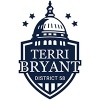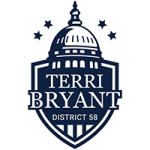Between the costs of fighting the COVID-19 pandemic and the state’s built-in structural fiscal issues, the influx of nearly $8 billion in federal money from the American Rescue Plan (ARP) Act was being eyed to plug a number of holes.
Gov. Pritzker had hoped to use some of the federal money to pay back $3.6 billion that the state borrowed last year. However, an interim federal rule states that potential uses for the money “would not include interest or principal on any outstanding debt instrument.” That rule is currently being interpreted by budgeteers to mean that the funds couldn’t be used to pay back the loan.
The Illinois Comptroller’s office has stated that they are working to get further clarification on the rule.
Additionally, the federal rules state that money can’t be used to cover tax breaks, directly or indirectly, going so far as to empower the U.S. Treasury Department to claw back funds equivalent to any decrease in state tax revenue. This rule has been interpreted to mean that if Illinois accepts the ARP funding, it can’t offer any new tax breaks, credits, or reductions, including tax credits designed to help grow jobs or help reduce property taxes for struggling homeowners.
Attorney Generals from 21 states threatened to sue the U.S. Treasury Department over the ARP tax rules, with the majority of them having followed through on that promise. Illinois has not joined that effort.

